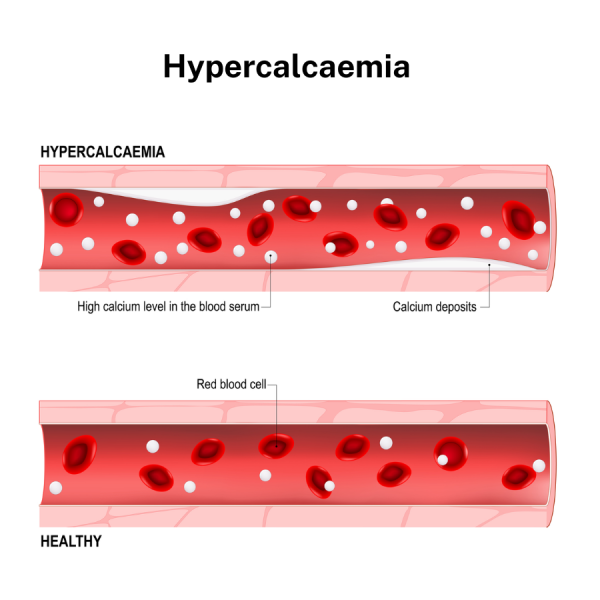The treatment of hypercalcaemia depends on what is causing it and how severe it is. If the levels of calcium in your blood are only slightly high and you don't have any symptoms, your healthcare provider will probably just monitor your levels regularly. This will involve having blood tests every 6 months or so to check your calcium levels and kidneys. You may be advised to:
- drink more water each day to reduce the risk of kidney stones
- not exceed the recommended dietary calcium intake, eg, about 1000 mg per day
- make sure you're getting enough vitamin D.
If you have extremely high calcium levels in your blood, you may need to be hospitalised. This is so a doctor can reduce your calcium levels and monitor you regularly.
If your hypercalcaemia is due to an overactive parathyroid gland, you may require surgery to remove the parathyroid gland. Read more about treatment options for hyperparathyroidism.
For hypercalcaemia due to cancer, osteoporosis medicines called bisphosphonates are given by injection into your vein. There are other medicines that can be used but they usually require specialist care. If it's caused by high levels of vitamin D being made in your body because of certain kinds of inflammation, then a short course of steroids such as prednisone may be given.
What questions should I ask my healthcare team about hypercalcaemia?
If you're diagnosed with hypercalcaemia, you may have lots of questions for your doctor, nurse, pharmacist or other healthcare professional. It’s okay to ask questions. Here are a few suggestions.
- What is causing my hypercalcaemia?
- How severe is my hypercalcaemia?
- What are my treatment options?
- What are the side effects of treatment?
- What can I do to reduce the symptoms of hypercalcaemia?
- How will having hypercalcaemia affect my everyday life?
- Are there any foods I need to stop eating?
Apps reviewed by Healthify
You may find it useful to look at some nutrition, exercise and weight management apps.








